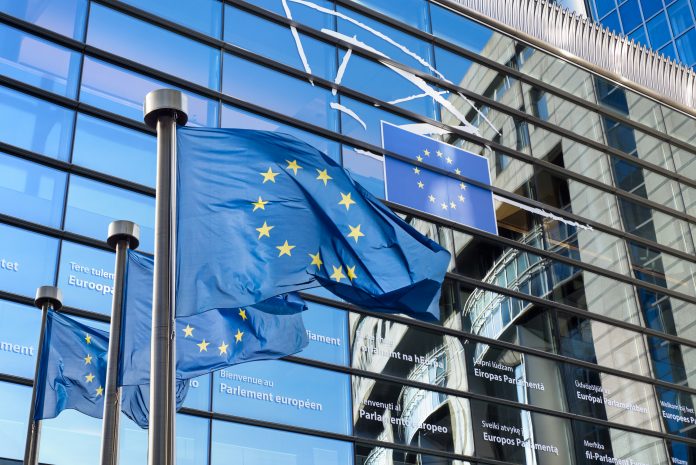Mariya Gabriel, European Commissioner for Innovation, Research, Culture, Education and Youth, illustrates how education, research and innovation are essential for transformations that can lead us to a sustainable economy
More than ever, Europe needs to invest in its most valuable assets to address the challenges ahead that I can summarise in three words: recovery, green and digital.
People are at the centre of our policies because if we want to modernise our societies and our economies, we need to develop skills and competences allowing us to innovate in our infrastructures and services.
Europe is very well equipped to start a decisive decade, with programmes like ERASMUS+ and Horizon Europe, as well as all the synergies we can create with other EU and national programmes and initiatives.
With Horizon Europe we have an unprecedented R&I programme, both in terms of budget and also scope. It supports the full range of research – from basic science – through the European Research Council – to targeted impact-driven research and innovation with the strategic clusters on health, digital, energy and mobility.
We also have new instruments to support emerging innovations by SMEs – through the European Innovation Council and the European Institute of Technology. More attention to the mobility of researchers and more resources to support the access to excellence by less performing countries.
Erasmus
Since 1987, Erasmus has been one of the most iconic and successful programmes of European integration. It keeps expanding to adapt to new challenges and become more inclusive. With a budget of €26.2 billion and an extra €2.2 billion from the EU external cooperation instruments, the new Erasmus+ programme 2021-2027 almost doubles its 2014-2020 budget. The programme will support innovation and new partnerships between academia, science and business, to find new and sustainable solutions for the future. It will cover school education, vocational training, higher education, adult learning, youth and sport, and will support these sectors throughout Europe’s transition to a greener and digital economy.
Thanks to its ambitious budget, we expect 10 million individuals across the European Union and beyond to benefit from learning time abroad over the next seven years. This will help them develop skills and competences for their personal, social or professional development.
The COVID-19 crisis has made it clear that Erasmus+ can and should play to its potential in preparing individuals and organisations for digital transformation. The programme must help to support the competences of both teachers and learners in using digital tools.
And, more than that, it must contribute to boosting Europe’s capabilities in core forward-looking sectors like artificial intelligence, robotics and environmental engineering. The pandemic has reinforced the need for more flexible learning formats, such as blended and virtual learning. Building on the success of the Digital Opportunity Traineeships, more opportunities will be opened to students, graduates and staff in higher education and vocational education and training to develop their digital skills.
Young people have always been an admirable driving force in the commitment to preserving our planet. We will help young people make their voices heard in debates at local, national and European levels. We will support projects to raise awareness among youth of our common European values and the fundamental rights of the Union. DiscoverEU, which gives 18-year- olds travel passes to travel around Europe, becomes an integral part of the Erasmus+ programme. Exchanges and travels open minds, stir up curiosity, spark new ideas and new ways to act. We want to support young Europeans harnessing their potential as full citizens.
Furthermore, the European Universities Initiative will continue supporting alliances created by higher education institutions all over Europe. These alliances focus specifically on a challenge-based approach, which allows them to come up with working solutions to societal challenges through interdisciplinary approaches. Research and Innovation are an integral part of the European Universities concept, which together with education, must be at the service of the society. One way to achieve this is to build bridges between research, education, and business.
Taking into consideration the highly competitive nature of today’s global market, the demand for a talented and experienced workforce has never been greater. Career development conditions and investment schemes that enable attracting and retaining the best researchers in Europe are necessary in the global race for talent.
However, precarious employment has not improved adequately over the past years, increasing the risk that most talented researchers may opt for working elsewhere. Training and career development of researchers insufficiently focus on entrepreneurship or opportunities outside academia.
That is why, we, the European Commission, together with EU Member States and stakeholders, are developing a new framework for research careers. This framework aims at improving the working conditions and professional development of researchers. It also contributes to reforming career assessment systems and giving the right value to all its different elements: teaching, research, outreach, valorisation and entrepreneurship, management and leadership.
The EU flagship programme for researchers’ mobility and career development – Marie Skłodowska Curie Actions, supports excellent research by equipping researchers with the knowledge and skills they need. It also offers them the international, inter-sectoral approach they need to tackle future societal challenges and fill the top positions of tomorrow.
The Marie Skłodowska Curie Actions
The Marie Skłodowska Curie Actions have already supported the training and development of more than 130 000 excellent, talented and, in a large part, young researchers. Through excellent international doctoral programmes, collaborative research, inter-sectoral mobility and international dimension, Marie Skłodowska Curie Actions directly contribute to developing a new generation of highly skilled and resilient researchers.
The new Marie Skłodowska Curie Actions also emphasise the cooperation between academia, industry, and SMEs on entrepreneurial aspects, and on tackling the recognition of researchers’ skills. The objective is to incentivise researchers to pursue a career outside academia through enhanced inter- sectoral schemes involving industry. This will improve researchers’ employability, career prospects, and boost the permeability of young talents across Europe.
We, the Commission, are leading the work with various programmes providing financial support and promoting a common understanding to achieve, by 2025, a true European Education Area. One that invests in youth, in education, in lifelong learning. One that leaves no one behind and makes the European Union fit for a more sustainable and digital world.











